Julian Assange: Most Decisive Press Freedom Case of Our Time – Stefania Maurizi
Facing extradition to the United States, WikiLeaks founder, and publisher Julian Assange has been held in arbitrary detention under psychologically distressing conditions for years in the U.K. Stefania Maurizi, a journalist for the Italian newspaper Il Fatto Quotidiano, recounts what she witnessed at Assange’s most recent hearing at a U.K. High Court in London, where his lawyers argued for the right to appeal his extradition. She lays out the case for releasing Assange in the name of preserving press freedoms and serving the public’s right to be informed of war crimes and abuses of state power.
Talia Baroncelli
Hi, I’m Talia Baroncelli, and you’re watching theAnalysis.news. Stefania Maurizi will be joining me today to speak about the case against Julian Assange.
If you’d like to support the work we do, we’d encourage you to go to our website, theAnalysis.news, hit the donate button at the top right corner of the screen, and make sure that you get onto our mailing list; that way, you’re always updated every time there’s a new episode. You can also listen to us on podcast streaming services such as Apple and Spotify, like and subscribe to the show there as well as on YouTube. See you in a bit with Stefania Maurizi.
WikiLeaks founder Julian Assange is best known for publishing the Iraq and Afghanistan War Logs, including the infamous collateral murder video, as well as diplomatic cables, which revealed all sorts of war crimes and state abuses of power, crimes which deserve to be scrutinized by the public eye.
Under the Obama administration, the Department of Justice had investigated Assange for years but had not formally prosecuted him due to First Amendment concerns that pursuing charges against Assange would enable similar charges against press outfits such as the New York Times, which had published the same documents obtained by Assange. It would criminalize the press for doing its job and publishing the documents leaked by whistleblowers in the service of the public.
It was the Trump administration that had brought the superseding indictment against Assange, presenting 18 counts against him, 17 of which were alleged violations under the Espionage Act. The other charge was presented as Conspiracy to Commit Computer Intrusion with Chelsea Manning, a U.S. Intelligence Analyst with the U.S. Army deployed to Iraq, alleging that Assange had helped Manning crack a password hash.
On January 21, 2021, the U.K. District Court Judge, [Vanessa] Baraitser, blocked Julian Assange’s extradition to the United States. She did not contest any of the U.S. Department of Justice’s legal arguments for extraditing Assange but ruled that his mental health, as well as the risk of suicide, were all too great to extradite him.
On December 21, 2021, a U.K. High Court reversed Judge Baraitser’s decision, and Assange appealed this decision before the U.K. Supreme Court.
In March 2022, The Supreme Court didn’t budge and ruled that the U.S. had provided assurances that Assange would not be subjected to torture or other inhumane treatment. However, given the U.S. track record of torturing Guantanamo detainees or holding people in solitary confinement for decades, these diplomatic assurances that Assange would not be subjected to torture were pretty much empty.
At the time, Julia Hall, an Amnesty International Deputy Research Director for Europe, said that such assurances are inherently unreliable and leave people at risk of severe abuse upon extradition or other transfers.
A few months later, in June 2022, Home Secretary Priti Patel approved the extradition of Assange to the U.S. This is what prompted Assange’s lawyers to argue their case to essentially have the right to appeal the initial U.K. District Court decision by Judge Baraitser, which had blocked Assange’s extradition but had rejected all of Assange’s legal arguments against the American prosecution.
Just recently, on February 20 and 21, 2024, Assange’s legal team argued for a full appeal hearing before a U.K. High Court in London. The court will issue its ruling in the next few weeks on whether Assange has the right to appeal or not. In the case of a rejection, Assange’s legal team would take the case to the European Court of Human Rights.
Joining me now is journalist Stefania Maurizi. She is the author of the book Secret Power: WikiLeaks and its Enemies, which has a foreword by filmmaker Ken Loach, an amazing filmmaker. The book is now available in several languages, including English, Italian, French, and Spanish. It’s soon to be translated into Albanian and German.
She also publishes for the Italian daily newspaper Il Fatto Quotidiano. I must say that the director of this outlet, Marco Travaglio, has really stood out in the Italian media landscape recently, or for the past few years, in defending Assange and exposing this miscarriage of justice that has surrounded his entire prosecution and case.
You were recently in London covering the High Court hearings on whether Assange has the right to appeal his case. Why don’t we first talk about what you saw there? Assange was unfortunately far too ill to even attend this specific hearing.
Stefania Maurizi
Yes. First of all, thank you for having me. I have to say I feel lucky to have my newspaper, Il Fatto Quotidiano, which has been the only newspaper willing to speak out for Julian Assange. I had to resign from my former newspaper. It was my decision that I decided to resign to be able to work on this case as I have always done. I feel lucky and grateful to my newspaper and editors like Marco Travaglio, Peter Gomez, and Maddalena Oliva for their work.
I have to say that the last hearing at the High Court was pretty incredible. I have been a journalist for the last 23 years; I have never seen anything like that in the Western world when you attend a hearing in which clearly the press was not welcome. We had personally asked for permission to attend on December 19, 2023, and the hearing was supposed to be on February 20 and 21. Well, I was given permission to attend the day before the hearing as I was boarding my plane. Once we were there, there were no seats allocated for the press. We had to queue for hours in the rain. Once we were in the court, we were not provided an opportunity to hear properly. Microphones were not properly used. The judges could understand, but we could not hear, and apparently, they could do nothing about this, which is pretty incredible because they could have just ordered a few microphones. They could have somehow helped.
The U.K. authorities had two months to organize a room for the press. We were put in a Victorian gallery with no tables, so we could not see anything. We could not even understand who was speaking because we could not see or we could not watch properly, and we had no tables to take notes. It was really unbelievable. This compromised our ability to hear the arguments, to understand what was going on in the court.
Let me tell you one of the reasons why I wanted to be there was not just to hear the arguments by the United States and by Julian Assange’s defense. I was also there to try to see how Julian was because the last time we had seen him in public was in October 2021. Since then, we have been unable to see him and know how he is feeling.
I remember in October 2021, it was really bad. We learned later on that he had a mini-stroke during the hearing, and he was in such bad shape. He looked very old, very tired, and in very bad condition. We hoped we would see Julian at the hearing, but he was not there because he was not well. Let me tell you that I’m sure he was not well. If he was okay, he would have attended because he wanted to have control. He wanted to understand the argument discussed at this hearing. He probably was in quite a bad shape.
Indeed, a reporter from Sans Frontières had an opportunity to visit him in Belmarsh, and they found him in bad shape. They found him not well at all. Obviously, how can he be well after 14 years, confined initially under house arrest, then in an embassy, then in Belmarsh? How can he be well? He cannot be well, of course.
Talia Baroncelli
I read that he had a broken rib from coughing so much because he’s been held in Belmarsh for so long. He hasn’t been able to go out and breathe fresh air for such a long time and is being held in [inaudible 00:10:19].
Stefania Maurizi
Yeah, this is what we have been told by reporters from Médecins Sans Frontières. They are following the case. They had access to him. They can visit him in prison. Let me tell you, we are journalists who have worked as media partners with WikiLeaks for our newspapers. I never worked for WikiLeaks. I have always worked as a media partner on the documentation and on the case for my newspaper. We have seen in the last decade how his health has literally collapsed, and clearly, he is not well.
Let me tell you, I come from a country, Italy, in which we have many problems. We have problems with our prisons, with our judicial system, and so on. We have legal scandals and all sorts of problems. At the same time, in Italy, it would have been impossible to keep in prison a man for five years with no trial just because the U.S. wanted to extradite him. There is no chance you can keep someone in prison for five years without a trial.
Talia Baroncelli
We should also mention that even though it was really hard to hear Julian Assange’s case, I do believe that Edward Fitzgerald, the KC, the lawyer who’s working for Assange, said and made a very important statement. If Assange were to be extradited to the U.S., he would be vulnerable to attacks by U.S. agencies, such as extra-legal attack elimination, given that there is a history of the Trump administration, and particularly, Mike Pompeo, trying to either kidnap or assassinate Julian Assange when he was granted asylum in the Ecuadorian Embassy in London.
It’s really important to note that it was actually under the Trump administration that this case against him was brought and that under Obama, even though Obama had used the Espionage Act to target and accuse whistleblowers, he never actually brought the case against Assange because that would, in fact, mean he would have to prosecute other journalistic news outlets such as the New York Times. He didn’t want to do that because he didn’t want to make the case against the New York Times as that would erode journalistic and press freedom.
So it’s really important that given that it was under the Trump administration that the cases were brought against Assange and that it’s possible that Trump might win, that there’s a high likelihood that if Assange were to be extradited to the U.S., that he would face all sorts of torture and solitary confinement. We should also say that if Biden is re-elected, he would probably face the same treatment. What is your assessment now of the U.S. Department of Justice in not dropping this case and continuing with prosecuting Assange?
Stefania Maurizi
I think it is absolutely scandalous. It is absolutely devastating for press freedom and for the freedom of the right of the people to know about our governments, about wars, about torture, about extrajudicial killing, about how our government is spending our money and acting in our name. It is absolutely devastating.
That’s why I absolutely want to win this case, not just for Julian Assange as a human being, but for the consequences, for the domino effect of this case, on the right of the people to know, on the right of our journalist to expose state criminality at the highest level. Because if you cannot reveal war crimes, if you cannot reveal torture, what’s the freedom of the press?
Clearly, it must be possible in a democracy. If it is not possible, if our society is going in that direction where it is not possible; if you do it as a journalist, you go to prison for life in a supermax, as Julian is high risk, well, our society becomes openly authoritarian. Do we want our society going openly authoritarian. Absolutely, I don’t want this.
You are absolutely right to mention this massive scandal. The CIA planned to kill and kidnap Julian Assange. This is not a conspiracy theory. We have the witnesses under protection who testified about these alleged plans to poison him or to kidnap him. Then we have a good investigation by the U.S. media, Yahoo News, where the Yahoo News journalists were able to get over 30 sources, government sources, both Conservatives and Democrats, discussing this plan and telling Yahoo News what was going on.
In 2017, the CIA made a plan to kill or kidnap Assange. Do we think that Julian Assange, if he were extradited, would be treated fairly after this persecution, after the U.S. administration at the highest levels were calling to kill Julian and treating him as an Al Qaeda operative, treating him as a foreign agent or planning to kill or kidnap him? Do we think it is possible that after all this, after all we have seen in the last 14 years, if extradited, he will be treated fairly? This is unbelievable that people still believe, still think that we are in the presence of a legal process. Clearly, the legal process is just an appearance. The U.K. and U.S. authorities are using the legal process to cover this illegal, brutal, illegitimate persecution of a journalist who will go to prison for exposing war crimes.
If you look at the superseding indictment, he’s charged with receiving and publishing these documents, which are among the most important documents ever published in the history of journalism. They have revealed unbelievable things, incredible, important things. He’s charged for this reason. They want to put him in prison for life for receiving and publishing these documents, not for other reasons. It’s a massive scandal. It is devastating for the freedom of the press.
Talia Baroncelli
Right. The superseding indictment, which you’re referring to, was brought by the Trump administration in 2019. I think the timing is very important there because they weren’t able to bring a case against him prior to. As we already mentioned, under Obama, the Obama DOJ was worried that if they brought the case against Assange, then they would essentially be prosecuting the Guardian, El País, Der Spiegel, and the New York Times because those outlets published a lot of what was revealed in the Iraq War Logs, in the Afghanistan War Logs, in the diplomatic cables that Assange disclosed.
The timing is really crucial there, but it’s also worth noting that what is actually in that superseding indictment is very flimsy in terms of its legal basis, and there are a lot of misconceptions. There were 18 accounts against Assange, 17 of which were tied to violations or alleged violations of the Espionage Act. The 18th charge was related to a conspiracy to commit computer intrusion or basically hacking a government computer with Chelsea Manning. But that’s not what Chelsea Manning did. Chelsea Manning had her own case and elaborate testimony in 2010. In 2013, she testified, saying that she alone was responsible for obtaining or accessing those documents and for providing them to Julian Assange.
Essentially, the DOJ’s case says that it was Assange who helped her crack a password hash. But that’s not cracking a password to access the documents. Chelsea Manning already had access to thousands and thousands of Iraq War Logs, Afghanistan War Logs, and all sorts of really highly classified documents. She didn’t need access to the documents. What she asked Assange to help her out with was to crack a password hash, which would protect her identity so she would be anonymous while viewing those files or while reading additional files.
Essentially, Assange is being prosecuted for helping and protecting his source. That is something that journalistic outlets do all the time, or they shouldn’t be doing all the time. They shouldn’t be endangering their source who’s providing them with really important documents in the public interest. I think the narrative there is really important.
They said the smoking gun was that Assange said, “Curious eyes never run dry, and that the WikiLeaks website was soliciting all sorts of information.” But that is not true because that is what journalistic outfits constantly do. They are trying to get information, regardless of what the classification of that information is, in order to expose it to serve the public interest.
Stefania Maurizi
By the way, they don’t even have evidence that the charge was between Julian Assange and Chelsea Manning. There is no such evidence so far. Let me tell you, the U.S. authorities have tried all they could to break Chelsea Manning down in order to have her implicate Julian Assange, and making the relationship between Chelsea Manning and WikiLeaks is not a usual relationship between a source and a media organization. They have tried to depict it as a conspiracy, as a conspiracy for computer intrusion. At the end of the day, this theory has gained no traction at all. It was never proven and quite the opposite. It’s the opposite. They tried to put pressure on her. They put her in prison. She tried to commit suicide three times. At the end of the day, she was never willing to invent what they wanted from her, and they tried in every possible way.
Clearly, this is the way around the journalistic protection. They want to make Julian Assange appear as a computer hacker rather than a journalist receiving documents from a source and publishing them after checking their authenticity, whether they are authentic, and whether they are in the public interest. They want to deny him journalistic protection, which they have tried so hard for many, many years.
If you look at the press release by the U.S. DOJ, they always claim he is not a journalist. What he’s doing is not journalism. I think it’s really important that the public understands that we should never have allowed the state and its security complex to establish who is a journalist and who is doing legitimate journalism.
Let me tell you, I come from a country, Italy, which invented fascism. One of the first things that [Benito] Mussolini did was to define who was a journalist, who was a legitimate journalist, and who was not. Clearly, it was absolutely in the interest of his regime to control the press, and he did so by establishing who was a legitimate journalist.
When I read the U.S. DOJ press release saying that he’s not a journalist, my mind goes back to what we went through when our regime tried to establish who was a journalist as a way to control the press, to control who had press protection, journalistic protection. This is really important.
Going back to the Obama administration, they put Julian Assange and WikiLeaks under investigation in 2010. The Obama administration spent eight years investigating WikiLeaks. At the end of the day, the Obama administration decided not to charge him. Do you think if the theory of the U.S. DOJ that Julian Assange and WikiLeaks put lives at risk was vindicated, was true, the Obama administration wouldn’t have charged him. Clearly, if they had evidence of such damage of Julian Assange and WikiLeaks putting sources at risk, putting at risk people in Afghanistan, people in Iraq, people around the world, especially under an authoritarian regime. If they had any name, any obvious, any solid evidence, clearly, the Obama administration would have charged him. Of course, he would have, but they never did it. It was the Trump administration.
Now we have the context. We know that after Vault 7, after WikiLeaks published the documentation on the CIA cyber weapons, Mike Pompeo and the CIA were absolutely upset. They were furious. They want vengeance. They wanted to devise a plan to kill and kidnap him. At the end of 2017, we had the first charges under seal for computer intrusion. It was in 2017, after Vault 7, after the CIA was so upset that they devised plans to kill Julian Assange. This legal process was accelerated by the theory, and the CIA was completely upset about the embarrassing revelations of Vault 7.
Talia Baroncelli
I think it’s also really important to point out that there was a recorded conversation between Julian Assange where he is calling the State Department saying that he has all of this. He has the collateral murder video, he has all the Iraq War Logs, he has all the diplomatic cables, and he could actually redact some of the names in order to protect the identities of certain people mentioned. There was no interest on the part of the State Department to do so.
Saying that he endangered all of these people is disingenuous because they weren’t interested in redacting those names. It was only after then that Assange basically gave all of those documents, the disclosed documents, to the five journalistic outfits already mentioned, like the New York Times, Der Spiegel, etc. They were the ones who then decided what to publish and what not to publish. In the course of that, a lot of the information was then online. It’s not really Assange’s fault that those names weren’t redacted because the initial attempt to redact those names and to only show some of the information was not acquiesced to by the State Department.
Stefania Maurizi
Well, I have to say I was there. I have seen what happened because I was working on these cables, and we worked for nine months on the cables redacting whatever was necessary. What was the purpose of releasing the cables without the redaction after all this work? Clearly, it was the result of third-party actions on which Julian Assange and WikiLeaks had no control because they had no control on third-parties actions.
You are absolutely right to remind us that Julian Assange tried in every possible way to interact with the U.S. State Department to ask for assistance with redaction. I have the documentation, not because I got this documentation from Julian Assange. I got this documentation from the U.S. State Department through the FOI litigation. It is not a defense; it’s not Julian Assange’s defense cherry-picking the documents. I have access to the documentation through the U.S. State Department. They tried so hard to get assistance.
Before we started publishing the cables in November 2010, we have documentation, thanks to my FOI litigation, that they were willing to help the New York Times and they were willing to help the Guardian. They were willing to receive them in the Embassy and to have a conversation, but they were not willing to cooperate with Julian Assange and WikiLeaks.
You ask yourself, why? Why is there such a double standard? Why were they willing to have discussions with the New York Times and the traditional media, but they were not willing to have a discussion and to discuss the redaction and provide any assistance, which usually they do. They do this assistance, this dialogue with the media. They always do these things. In the case of Julian Assange and WikiLeaks, they refused. You ask yourself, why? Do they hope to have someone killed so that they could say, “Well, these guys are absolutely criminal, reckless people who caused the death of some people mentioned in the cables?” Or do they want to charge Julian Assange and WikiLeaks, so trying to provide some advice would have made things more complicated? Well, there must be a reason why they refused to do what they were doing with the traditional media. There must be an explanation for this double standard. This case is about all the double standards.
If Julian Assange deserved to go to prison for life, I just have to say I have published the same revelations. How do you explain this double standard? I don’t live in a supermax. All my colleagues at Le Monde, Der Spiegel, the Guardian, and the New York Times don’t go to a supermax, but he risks going there. How do you explain it? How do you explain it?
For example, an American citizen, the founder of Cryptome, John Young, published the old set of cables without the redaction one day before WikiLeaks. He’s an American citizen, so he’s supposed to stick the U.S. laws. The U.S. authorities never cared about his publications, never contacted him, never asked him to remove the documentation, and never charged him, whereas they charged an Australian journalist who published the day after Cryptome had published it. This double standard is incomprehensible. The only explanation is that they absolutely want to kill, to destroy Julian Assange, to make sure he is in prison for life so that they can set an example and make people terrified. The next journalist and the next source who has the next collateral murder, who has the next Afghan War Logs, the next Iraq War Logs, the next cables, they think twice, and they say, “I don’t want to end up how Julian Assange did. I don’t want to spend my life in an embassy without an hour outdoors. I don’t want to spend my life in a high-security prison like Belmarsh. I don’t want to spend my life in a supermax.” They want to terrify everyone, and they want to kill him. They want to absolutely crush him.
Talia Baroncelli
Yeah, I think they’re incredibly scared of him. They’re scared of the formidable work he’s done in the past exposing these war crimes. I believe at the High Court or in front of the High Court, there were a few gatherings there recently in February, and Jeremy Corbyn gave a speech to the protesters there saying, “Imagine if Assange was free right now working and exposing intel on what’s going on in Gaza, on the attack in Rafah in the Gaza Strip,” and things like that. It would be terrifying for the hegemonic powers that be. I think they’re really scared of the work that Assange has done and what WikiLeaks is capable of.
I’m wondering if you think that the public is becoming more aware of the value of the work that he’s done and how damaging this case is for journalism and press freedoms. We’ve seen several Australian officials say that the assurances granted by the U.S., the diplomatic assurances, that he wouldn’t be tortured in prison, that they can’t be relied upon. We’ve even seen in Italy, for example, places like Rome and Naples, granting Assange honorary citizenship. I just wonder if you think that if the window, the overtone window is changing in the direction of realizing how important Assange’s work has been so far.
Stefania Maurizi
Absolutely. I think people have now realized. Initially they could deny what was going on. They could think it was about Sweden, about the sex case. They could think all sorts of things. But now it is very clear how the U.S. and the U.K. authorities have smashed him, have crushed him, and how brutal his treatment is. There is no other way, no other objective to define his treatment. He’s received brutal treatment. Of course, they are not sending killers. Even if the CIA plans to kill or kidnap him, they are using the legal process. At the end of the day, he has never known freedom again. People now realize that since 2010, he has never worked as a free man. This is brutal. This is unacceptable in a democracy.
In a democracy, it must be possible to publish the Afghan War Logs, and we had the duty to publish. We absolutely had the duty to publish those documents, those revelations about war crimes and about torture. It was not just that we had the documentation, WikiLeaks had the documentation, or we media partners, had the documentation. We had the duty to publish because when you know that there is important information in the public interest that is in your hands as a journalist, you have the duty to publish.
Now, the public understands the full extent of his persecution, and they have started mobilizing. They have awarded him dozens of journalistic awards and honorary citizenships. We see people speaking out, politicians speaking out, and before they were silenced. Things have changed, absolutely.
Talia Baroncelli
Legal experts, as well as the UN, have been very clear on Julian’s situation, saying that the conditions he’s been subjected to have amounted to either inhumane treatment or torture. Even back in 2015, the UN working group on arbitrary detention said that by Julian staying in the Ecuadorian Embassy and not being able to go anywhere without being arrested, the Swedish and U.K. governments were subjecting him to arbitrary detention.
The former Special Rapporteur on Torture, the UN Rapporteur, Nils Melzer, visited Julian in Belmarsh Prison and said that he was being subjected to mental and psychological torture. The new Special Rapporteur on Torture, Alice Jill Edwards, has also said that he’s being held in horrible conditions and his mental state is not in good condition.
This is a very clear case in terms of the conditions of detention that he’s being held in and his mental condition. How would you say that the Italian jurists, for example, in Italy, are expressing their views on his case and standing up for Julian Assange’s rights?
Stefania Maurizi
Yes, in Italy, we have over 200 jurists. Some of them are prominent prosecutors, former prosecutors who investigated prominent cases, like the CIA rendition of Abu Omar, the Milan Cleric Abu Omar in Milan. This prosecutor is called Armando Spataro, and he’s one of the legendary Italian prosecutors who was able to get a final sentence for CIA agents responsible for the extraordinary condition of Abu Omar.
We have the former prosecutor, Enrico Zucca, who investigated the police abuses during the G8 in Genoa in 2001. You know these people are at the core of Italy. They are absolutely people who have defended the rule of law in Italy against terrible abuses like the CIA kidnapping people in the middle of the day in Milan or the police violence, the G8 in Genoa. These people know how to defend the rule of law from the state abuses. These people are speaking out and exposing and trying to speak out for Julian Assange, saying this is not acceptable in a democracy. You cannot put in prison a journalist for revealing war crimes against humanity. You have these people who wrote an appeal, and this appeal was promoted by Armando Spataro and by law professor Mario Serio. These are prominent juries. These are not common ordinary people who don’t know about laws, about the rule of law. These are people who have spent their lives defending the rule of law.
We also have another important thing. We have a committee that mobilized after the Argentinian Peace Nobel Prize, [Adolfo] Pérez Esquivel made an appeal. He said, “The Argentina regime was ready to kill me. But the only reason why they didn’t do it is because people woke up and they mobilized in order to stop the regime. If it worked with me, it can work with Julian Assange.” That release is the only thing that can save Julian Assange. We don’t have hope in the legal process. Maybe he will have a chance at the European Court of Human Rights, but we don’t have hope in the British justice [system].
We have seen how, since 2010, the British justice [system] has been used to keep Julian arbitrarily detained in the Embassy and now to keep Julian detained in Belmarsh without trial. We don’t trust the British judges. We don’t trust British justice when it comes to this case because we have seen what has happened in the last 14 years.
We have some hope in the European Court of Human Rights, and we have some hope, a lot of hope in the public pressure. That’s why we need jurists, we need people who may disappear, we need celebrities, we need intellectuals.
In Italy, we have Laura Morante, the renowned actress, and many others who have decided to speak out for Julian Assange. They are forcing even the media to cover the case. The media maybe don’t want to cover the case, but they cannot ignore celebrities like Laura Morante. They cannot ignore prominent prosecutors like Armando Spataro or Enrico Zucca and people like this.
Talia Baroncelli
Well, that’s a great point that you made because these jurists are obviously experienced with the issues of power and how the Italian state has been in collusion, essentially, with the Mafia and with other financial capitalist classes who are hiding their money. They’re not paying taxes. They’re tax evaders, essentially.
I remember reading that Italy’s economy would actually be the third greatest economy in the Eurozone. Actually, in the European Union, if you would look at its GDP, if rich Italians and the Mafia would pay their fair share of taxes.
I think these jurists are very experienced when it comes to dealing with people who have no respect for the law whatsoever, and they view what the United States Department of Justice is currently doing and what the CIA has been doing over the past few decades as a similar example or continuation of this abuse of power. You really get into this in your book as well, and you talk about the extradition of Abu Omar and the role of the CIA in this violation of Italian sovereignty. I highly recommend that people read your book because there is, of course, a great tradition in Italy of these judges who are trying to protect what’s in the public interest and to draw attention to these cases. Thanks for bringing that up.
Stefania Maurizi
Thank you for having me. Thank you.
Talia Baroncelli
Thank you for watching theAnalysis.news. If you’d like to support us and support the work that we do, you can go to our website, theAnalysis.news, and hit the donate button at the top right corner of the screen. Thank you so much for watching.
Podcast: Play in new window | Download
Stefania Maurizi is an Italian investigative journalist working for the daily Il Fatto Quotidiano, having previously reported for La Repubblica and l’Espresso. She began working with Julian Assange and WikiLeaks in 2009 for her newspaper. Among international journalists, she is the only one who has worked on the entirety of the WikiLeaks secret documents and the only one who has conducted multi-jurisdictional litigation to defend the right of the press to access the full documentation on the WikiLeaks case.
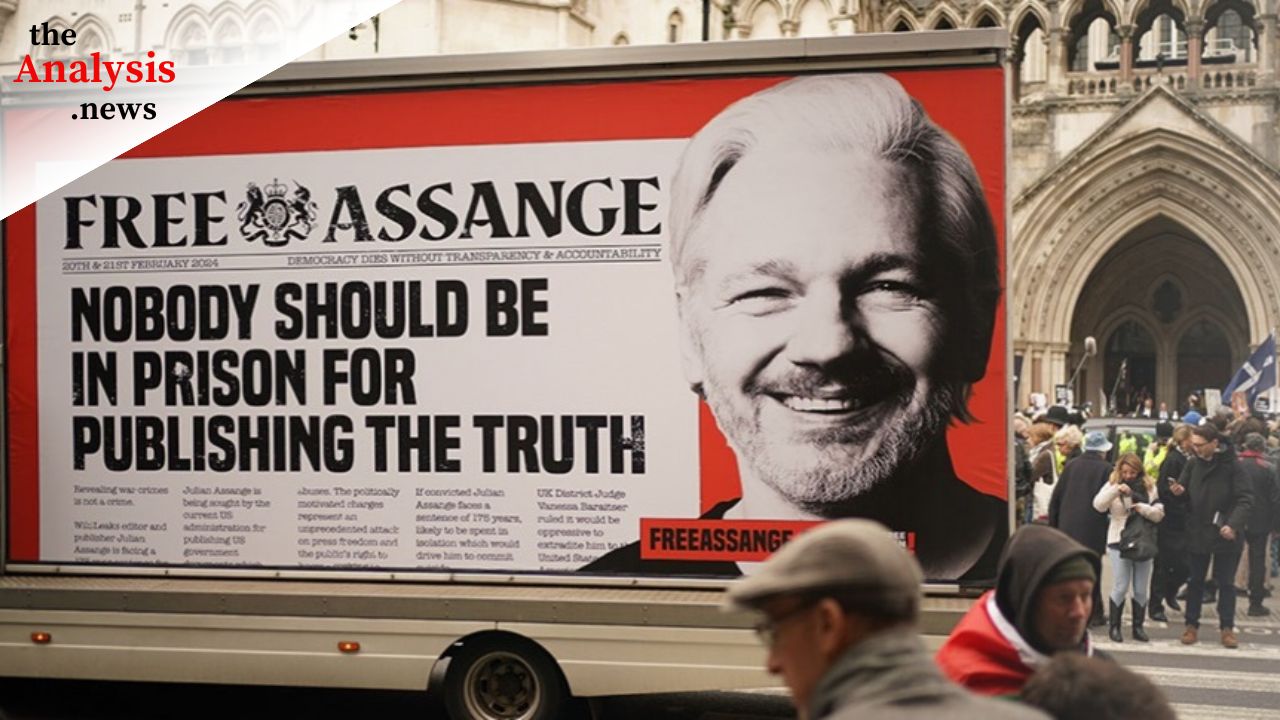
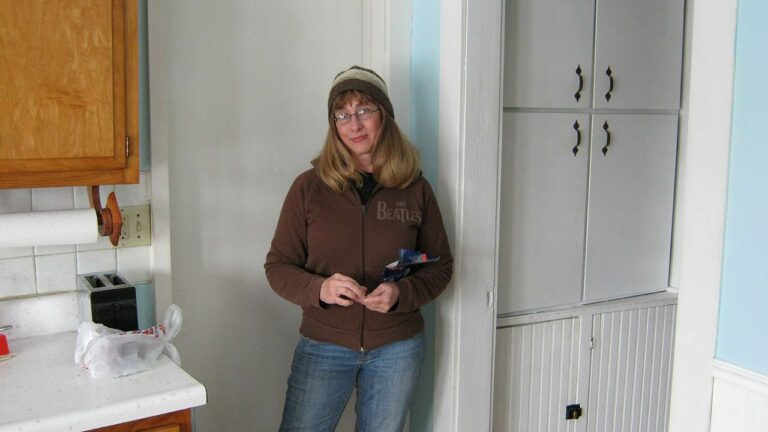
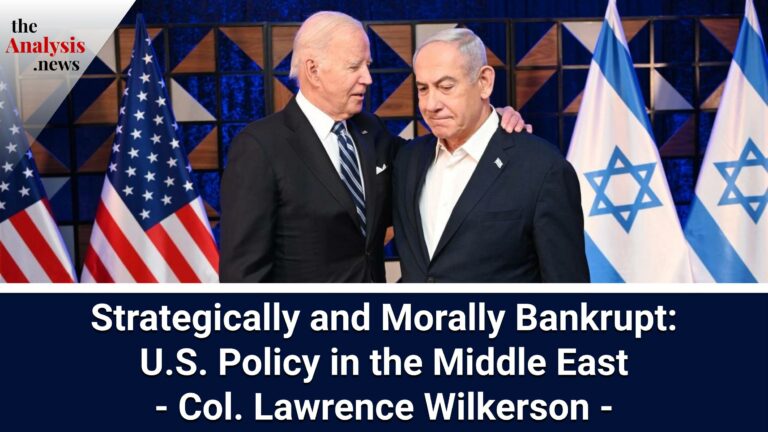
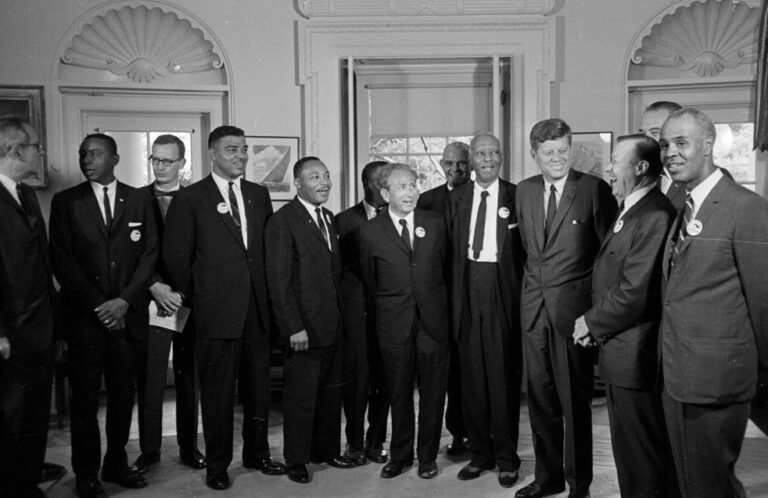
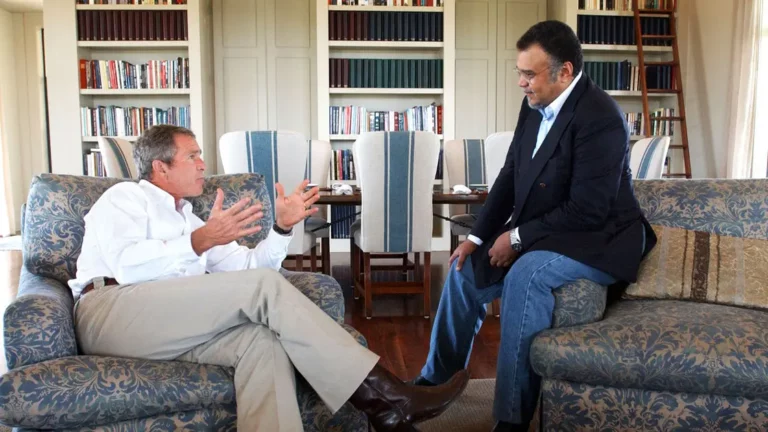
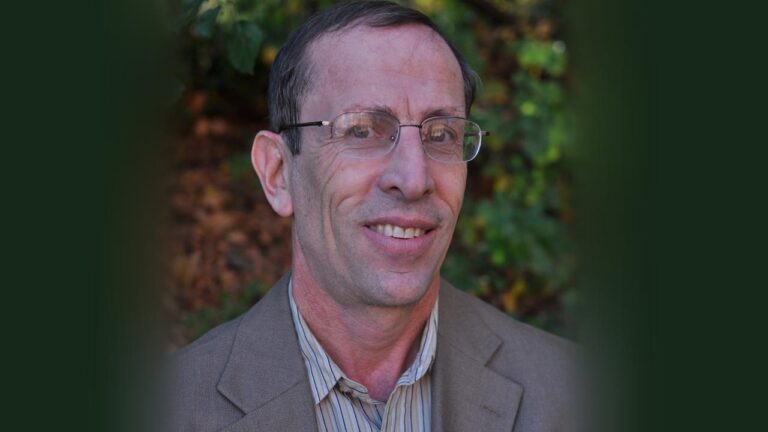
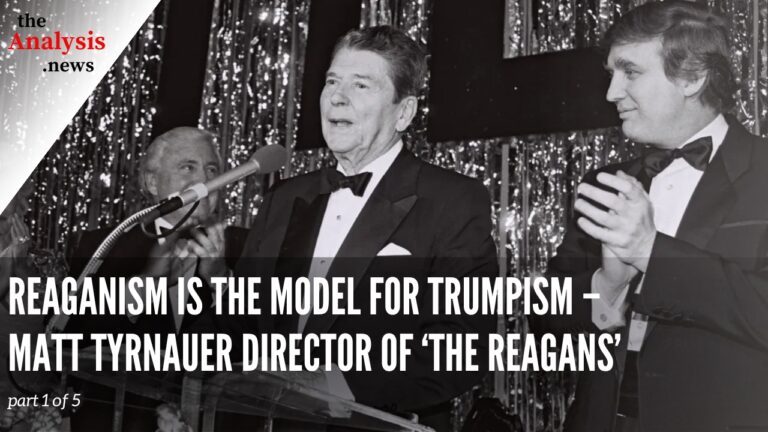
Thanks for this informative and succinct article 👍!
As Usual,
EA
Thank you